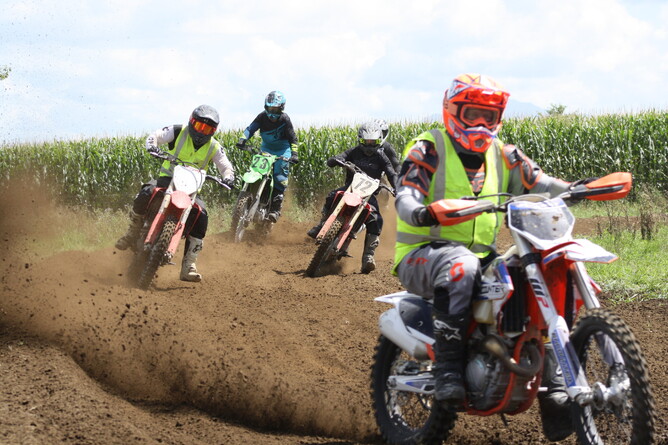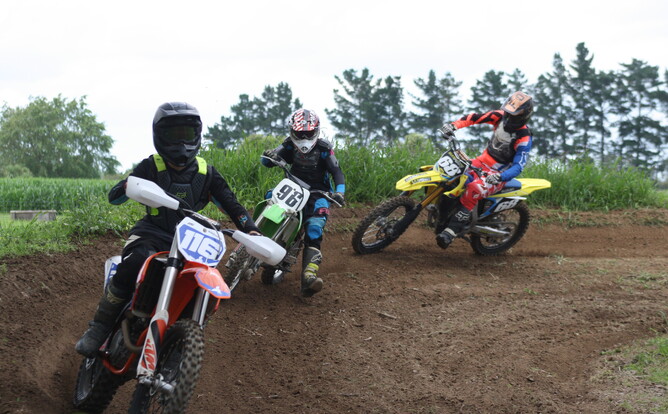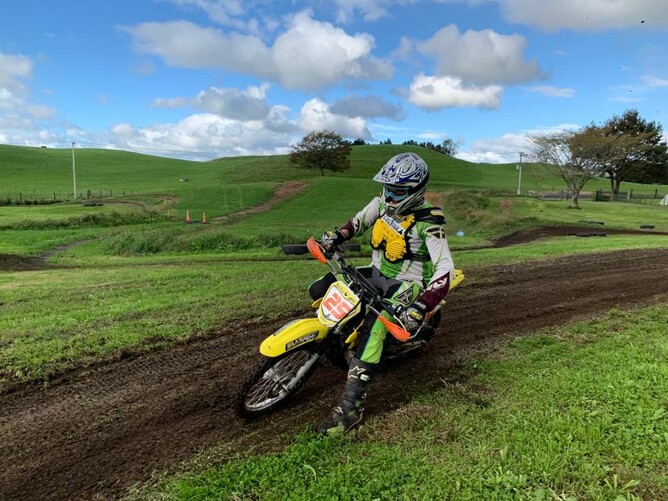The Therapeutic Benefits of Youth Encounter Dirt Bike Programmes
In recent years, Youth Encounter’s unique programmes have gained attention for its potential to foster cognitive growth and emotional well-being among our youth using dirt bikes as a tool of engagement. Using off-road dirt bike riding as a means to promote positive development and resilience among the participants offers a lot of fun and excitement. This article explores the therapeutic benefits of such programmes and examines how engaging in activities like dirt bike riding can contribute to cognitive growth.
Therapeutic Benefits of Dirt Bike Therapy
Youth Encounter programmes offer a unique blend of physical activity, skill-building, and adventure, which can have profound effects on participants' cognitive and emotional development. According to research by Taylor et al. (2019), adventure-based therapies, including those involving outdoor activities like dirt biking, have been shown to enhance self-esteem, problem-solving abilities, and emotional regulation skills among youth.
One of the key aspects of using dirt bike riding is its ability to provide a controlled yet challenging environment where participants can confront their fears, build resilience, and develop a sense of mastery over their surroundings (Brymer & Gray, 2010). Through navigating rough terrain, overcoming obstacles, and mastering new skills, participants learn to cope with stress, manage emotions, and develop a growth mindset (Brymer & Schweitzer, 2017).
Cognitive Growth Through Adventure
Engaging in adventurous activities like dirt bike riding can stimulate cognitive growth in multiple ways. Firstly, the need to navigate unpredictable terrain and make split-second decisions enhances participants' cognitive flexibility and adaptability (Brymer & Gray, 2010). By constantly assessing risks, problem-solving, and adjusting their strategies on the fly, participants develop critical thinking skills and learn to think creatively in challenging situations.
Dirt bike riding programmes foster experiential learning, allowing participants to directly apply cognitive skills in real-world contexts (Priest & Gass, 2005). As participants encounter obstacles on the track, they must draw upon their spatial awareness, judgment, and memory to navigate safely and effectively. This hands-on approach to learning not only reinforces cognitive skills but also fosters a deeper understanding of cause-and-effect relationships and the consequences of one's actions.
Furthermore, dirt bike riding promotes cognitive engagement through its multisensory nature. As participants manoeuvre through the terrain, they receive constant feedback from their senses, including visual, auditory, and proprioceptive cues (Mitten et al., 2019). This sensory-rich environment stimulates neural pathways associated with perception, attention, and motor coordination, enhancing participants' overall cognitive functioning.
Asensao et al (2008) Found through their research that many things change when riding a dirt bike, but one of the big differences they saw was the levels of Norepinephrine in the brain. During the activity of dirt bike riding the Norepinephrine (µg/24h) rose by 62%. With Norepinephrine being a contributor to neurotransmission we can understand that the activity of riding dirt bikes can develop our cognitive processes.
In conclusion, Youth Encounter’s activity of dirt bike riding offers valuable opportunities for cognitive growth and personal development for the young people of Aotearoa NZ. By combining adventure, skill-building, and therapeutic support, Youth Encounter programmes empower participants to overcome challenges, build resilience, and cultivate essential cognitive skills. As research in this field continues to evolve, it is essential to recognize the profound impact of alternative programmes like dirt biking in promoting holistic well-being and cognitive flourishing among today's youth.
References:
Brymer, E., & Gray, T. (2010). Developing an intimate “relationship with nature” through adventure activities: Allostatic load and stress reduction theory. Journal of Adventure Education and Outdoor Learning, 10(3), 167-182.
Brymer, E., & Schweitzer, R. (2017). Phenomenology and the Extreme Sport Experience. In Handbook of Phenomenology and Cognitive Science (pp. 291-305). Springer, Cham.
Mitten, D., Sullivan, J., & Van Raalte, J. (2019). Outdoor adventure activities as a means to foster positive youth development. In Positive Youth Development Through Sport (pp. 287-306). Routledge.
Priest, S., & Gass, M. A. (2005). Effective leadership in adventure programming. Human Kinetics.
Taylor, S., Hutton, A., & Wood, K. (2019). Outdoor adventure therapy: A complementary approach for adolescent mental health. Journal of Adventure Education and Outdoor Learning, 19(1), 60-73.



